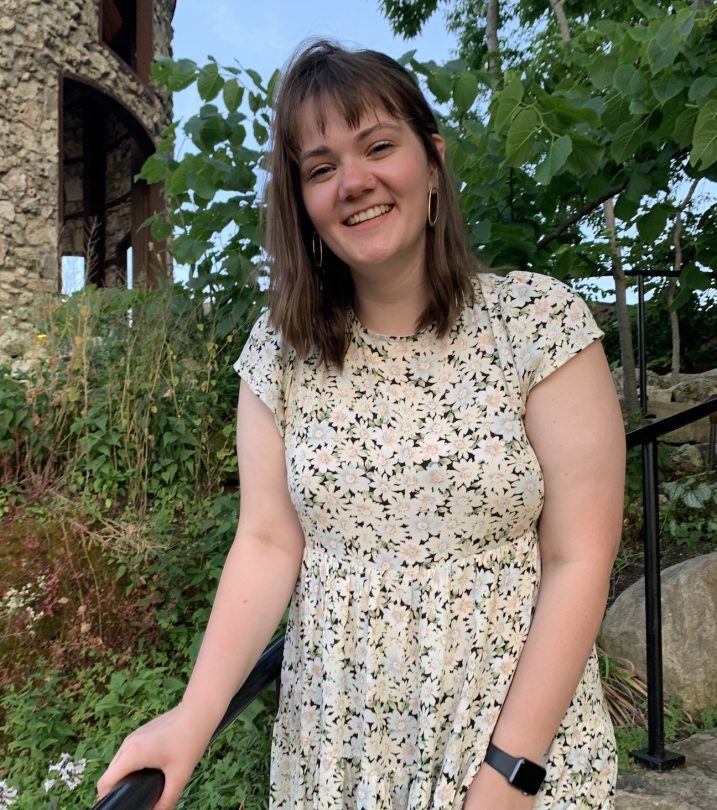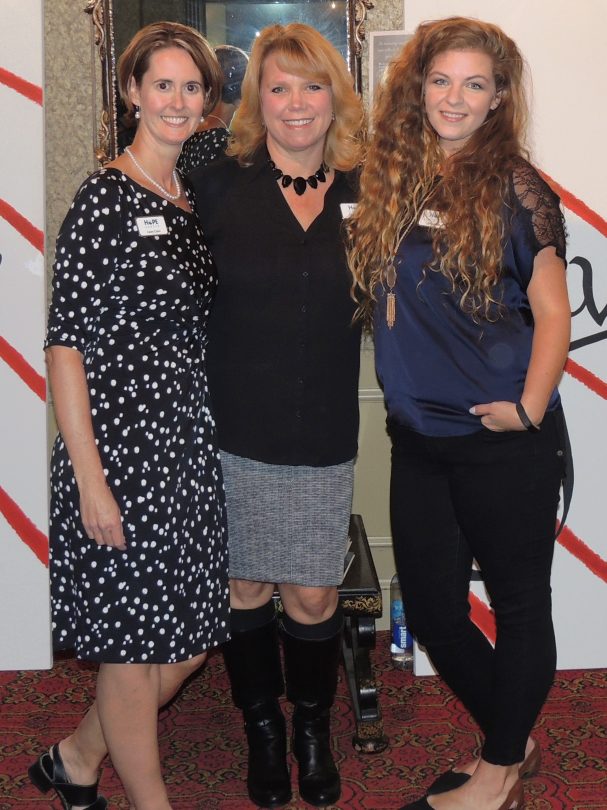
Among the advantages of being on Transylvania University’s campus in downtown Lexington is the easy access to career-making opportunities. But more than just being able to zip around the corner to an internship, Transy students have the benefit of long-standing relationships with neighborhood institutions. So, when students arrive on campus, the scaffolding is in place to build the experiences that will define their future.
Take the Hope Center, for example, where Jessi Samuel ’19 and Ashley Humphrey ’10 made significant strides toward advancing their very different careers.
Throughout its history of serving people experiencing homelessness and addiction, the Hope Center has had an ongoing relationship with Transylvania: through individual students volunteering and interning; student organizations packing lunches and serving meals; and the campus itself providing safe living space for the center’s clients during the coronavirus shutdown in the spring of 2020.
“There’s this natural relationship, because we’re close,” says Carey Cairo, volunteer and community relations manager at the Hope Center and One Parent Scholar House. She’s been working with Transy students throughout her eight years in the development office. Married to Michael Cairo, a political science professor at Transy, she appreciates how both the students and the institution benefit.
“We’ve been so pleased to have excellent interns that bring a lot to the organization and have fresh ideas and energy,” she says, recalling with particular fondness both Samuel and Humphrey.
“I do love that the students from Transy have that liberal arts view,” Cairo says, describing it as holistic and inclusive. “I think Transy students are able to look at the big picture and make connections between what they’re learning and the services we’re providing, and how we’re going about tackling these huge problems of homelessness and addiction in our community.”

Humphrey, who began at the Hope Center as a volunteer serving meals in the men’s recovery center cafeteria before working on projects and special events in the development office, says her liberal arts education and philosophy major provided “the foundation for understanding people and what drives individuals from several perspectives.” She progressed to intern and then to employee.
“By the time a full-time position became available with the mental health team,” Humphrey remembers, “I had learned so much from volunteering and interning that I had insight into the ethos and experience of how the Hope Center functioned, and positive engagement with clients from all walks of life.” She then earned a master’s in England, where she now works as a Young Persons Drug and Alcohol Practitioner. [Read a Q&A with Humphrey.]
Giving students a snapshot of what it’s like to work at a nonprofit and in social services, Cairo notes, helps them to discover what’s right for them.
For Samuel, the day-to-day experience in the development office, learning about the fundraising, donor relations, in-kind donations, special events and media work, helped to confirm her path and ultimately led to her current job as the annual fund manager at Bluffton University.
“I was able to work with Carey Cairo on coordinating volunteer efforts,” Samuel says. “I learned a new database, which gave me a competitive edge when searching and applying for development positions, and I worked with Carrie Thayer [director of development] who showed me how meaningful and powerful every single gift was to the Center, which is something I remind myself and apply in my current job almost daily.”
And, as helpful as it was to work up a specific skill set to complement what she learned in the classroom from her professors, including “the writing skills, critical thinking, problem solving and communication,” Samuel notes, there was even more to it.
“I think the most important aspect I learned from these opportunities that helped me secure my job,” she says, “is that you need to have a passion for what you do. My passion for development became rooted in me because of my real-world experiences I had at the Hope Center and the alumni and development office at Transylvania.”
The combination of campus life, academics and real-world opportunities put Humphrey and Samuel on a path to fulfilling careers. “Both Transy and the Hope Center have been integral to my current success,” says Humphrey, a native of Texas.
Samuel agrees: “A big reason why I chose Transy was because it was a small school located in a big city (big for someone from my small town in Ohio),” she says. “I knew from stepping onto campus that I would be able to take advantage of the rich environment Lexington would have to offer. Interning at the Hope Center was one of those opportunities.”

